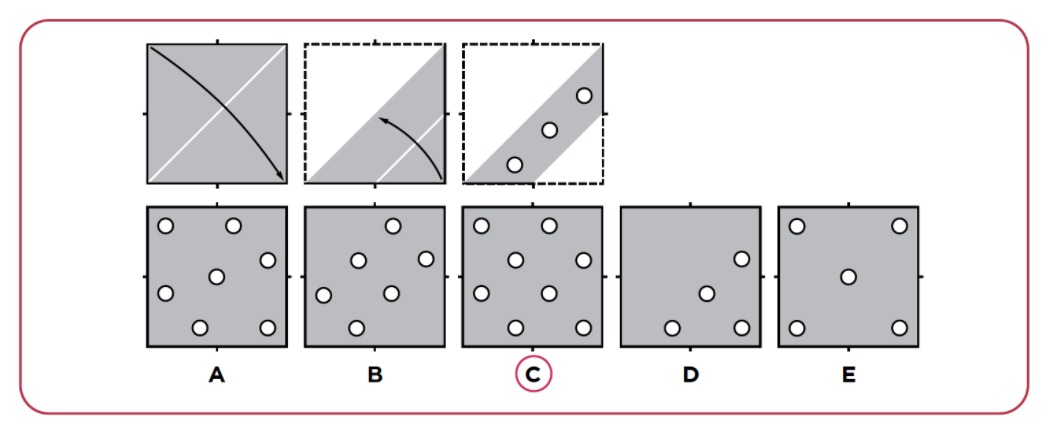The standard exam entrance points for most academically selective boarding independent schools are 4+, 7+, 8+, 11+, 13+ and 16+. UK parents register years in advance, as there are limited places at the top schools, otherwise your child might be on the waiting list. When you register your child with the school, the admission team will let you know what assessment papers your child is required to sit. Usually, it takes 2-3 years to prepare for the entrance exams since the competition for entry to the top independent schools is very strong, worldwide candidates are competing for a place for the best UK education. There could be more than one tier of exams in order to shortlist candidates.
ISEB Common Entrance at 11+ and 13+
11+
Pupils sit the Common Entrance examination at 11+ when they are in Year 6, mainly for entrance to senior independent girls' schools. There are two examination sessions each year, in November and January. Most girls sit the examination in January. They take papers in English, Mathematics and Science.
11+ Examination syllabuses & specimen papers
https://www.iseb.co.uk/Schools/Examination-syllabuses-specimen-papers/Common-Entrance-at-11
13+
The 13+ Common Entrance examination is strongly supported by many of the top prep and independent senior schools in the UK. Its rigorous syllabuses and breadth of subjects provide a strong academic focus for pupils in Years 7 and 8 and an excellent preparation for GCSEs.
Pupils sit the Common Entrance examination at 13+ when they are in Year 8. There are three examination sessions each year, in November, January and May/June.
The core subjects - English, Mathematics and Science - are compulsory. In addition, candidates can sit papers in a wide range of subjects chosen from French, Geography, German, Classical Greek, History, Latin, TPR and Spanish. The core subjects, most modern languages, Latin and Classical Greek are offered at more than one level. Weaker candidates are not expected to tackle papers beyond their ability.
13+ Examination syllabuses & specimen papers
https://www.iseb.co.uk/Schools/Examination-syllabuses-specimen-papers/Common-Entrance-at-13
UKiset
UKiset is an assessment designed for entry into British curriculum schools. The UKiset Profile provides schools with all the information they need when considering an overseas applicant.
The test includes assessments of academic potential and English language skills, and the results compare candidates against British students of the same age.
What the UKiset test covers
1. Reasoning - Designed to explore what kind of thinking a candidate finds easy or difficult and includes:
Verbal Reasoning – Language questions and problem solving with words
Non-Verbal Reasoning – Solving problems using shapes, pictures and logic
Mathematical Reasoning – Looking at number, value, quantity and sequence concepts
This part of the test is adaptive which means that the questions asked are designed to assess the student’s ability level. The more questions the student answers correctly, the more difficult the test will become. Therefore, not being able to answer a question does not mean the student is performing badly!
2. Reading and Listening
The second part of UKiset is the Cambridge English test, an online multiple choice test that assesses receptive language skills.
3. Essay Writing
The final section of UKiset is a short English essay, designed to demonstrate expressive language skills.
Cognitive Abilities Test Fourth Edition (CAT 4)
Assess the candidates’ overall ability, candidates will then be required to sit English and maths exams.
The CAT4 test (cognitive ability test) is used to predict student success through the evaluation of verbal, non-verbal, mathematical, and spatial reasoning. A CAT4 test is used as a school entrance test to assess student ability and future success. CAT4 includes reports for both teachers and parents. Parents receive their child’s individual reports, while teachers can access group reports, as well.
A CAT4 test battery involves evaluating the following skills:
-
Non-Verbal Reasoning – Thinking about shapes and patterns

-
Verbal Reasoning – Word patterns

-
Quantitative Reasoning – Number patterns

-
Spatial Ability – thinking about shape and space together and imagining a shape being changed and moving

Some schools set their own entrance papers in English, maths, reasoning. Some schools even provide past paper for download on their websites.
IGCSEs
Some independent schools require the results from IGCSE subjects as the qualification for Sixth Form entry. There are two exam boards:
-
Pearson Edexcel, IGCSE
The International General Certificate of Secondary Education (IGCSE) examinations, offered by Pearson Edexcel, are held in May / June and January. Pearson Edexcel is an examining and awarding body based in the UK and operates throughout the world.
https://qualifications.pearson.com/en/qualifications/edexcel-international-gcses.html
-
Cambridge Assessment International Education, IGCSE
The International General Certificate of Secondary Education (IGCSE) examinations, offered by Cambridge Assessment International Education are held in May / June and October / November. Cambridge Assessment International Education is an examining and awarding body based in the UK and operates throughout the world.
Apply for Academic Scholarship
If your child is considered a potential academic scholar then he/she will be invited to take the Scholarship examination instead of Common Entrance.
Apply for a Music Scholarship
Some schools offer music scholarship. Students will be arranged to attend an audition.